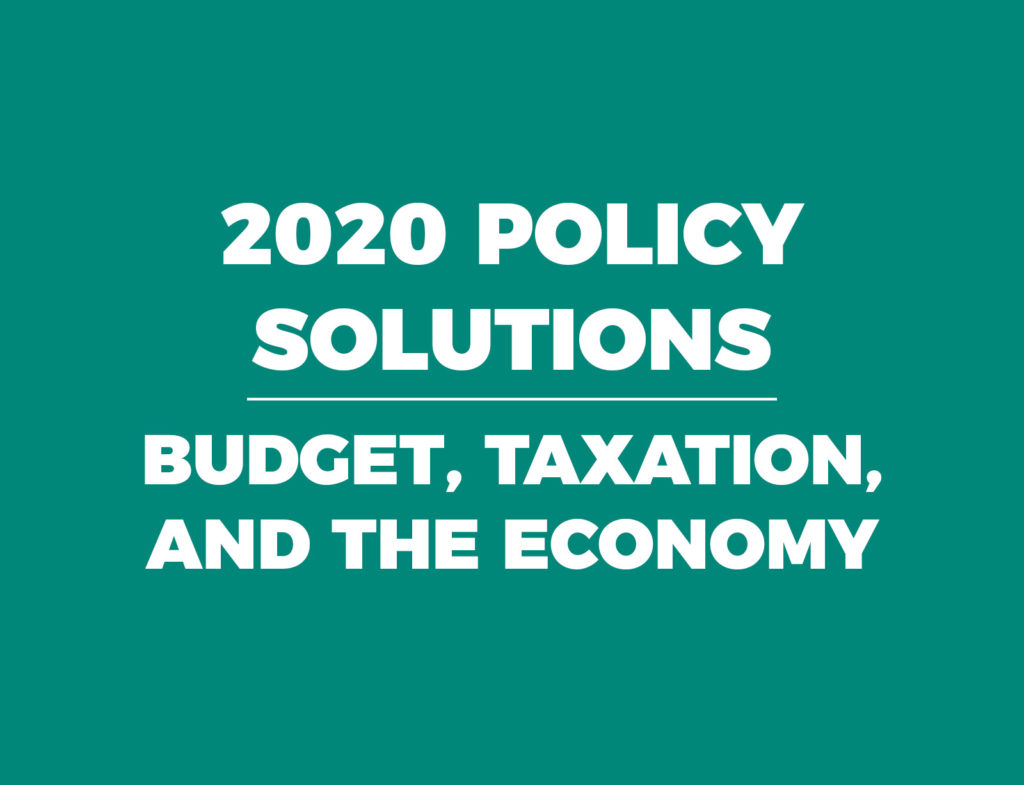Introduction
North Carolina has one of the strictest balanced-budget requirements in the country. State law holds the governor responsible for cutting expenditures to avoid a deficit. Republican leadership in the General Assembly since 2011 has helped by keeping inflation-adjusted General Fund appropriations per person unchanged. This spending restraint reversed more than a decade of fiscal irresponsibility, a period when increasing taxes to spend more was normal policy. Restrained spending has also made room to increase savings and cut taxes, leaving state finances better able to weather the next economic downturn.
A close look at recent numbers shows that education, Medicaid, and public safety received 89 percent of the $23.7 billion in Fiscal Year (FY) 2018-19 General Fund appropriations, including debt service. Taxes on personal income and sales provided 85 percent of the $24.8 billion in FY 2018-19 General Fund revenues.
State government needs revenue to pay for the goods and services it provides, and the state raises that revenue by imposing personal income, sales, and other taxes on its residents. Vehicle owners pay $4 billion to cover transportation funding. Federal funds add $15 billion. Lottery sales, tuition payments, unemployment insurance, and other sources contribute $11 billion, bringing total state spending in FY2018-19 to $54 billion.
Each source of funds poses intended and unintended consequences. Income taxes —particularly taxes on business income — grow faster than the economy in good times and fall faster during recessions. Federal funds come with strings.
Spending and tax changes made today have long-term implications. Individual bills with fiscal implications receive five-year fiscal notes, but budget bills only cover the one or two years of the budget cycle. This lack of knowledge could make it more difficult for policymakers to balance future budgets.
Key Facts
- Actual General Fund appropriations in FY 2018-19 totaled $23.7 billion, including debt service. Actual revenue totaled $24.8 billion. The year began with an unreserved cash balance of $905 million. This left $1.8 billion available at the start of FY 2019-20.
- In FY 1989-90, when the John Locke Foundation was launched, General Fund appropriations per person, adjusted for inflation, was $2,219. After peaking in FY 2007-08 at an inflation-adjusted $2,829, appropriations in FY 2018-19 were back to $2,329.
- Total government spending in FY 2018-19 was $54.5 billion, or $5,302 per person. In FY 1989-90, adjusted for inflation, total spending was $3,508 per person.
- State government’s reliance on tuition payments, lottery tickets, and other unbudgeted receipts increased from 8 percent of total spending in FY 1989-90 to 21 percent in FY 2018-19.
- Government savings in the rainy-day fund, also known as Savings Reserve, climbed to $2.0 billion before Hurricane Florence in 2018. As of December 1, 2019, it sat at $1.25 billion, with a target of 10.9 percent of General Fund appropriations, or $2.5 billion.
Recommendations
- Amend the state constitution to limit spending and spending growth. A proper amendment would (1) allow tax hikes or higher spending growth only if approved by public referendum or a legislative supermajority, (2) deposit excess revenue in the Savings Reserve or refund taxpayers, (3) prevent ratchet effects from recessionary spending cuts, and (4) apply to General Fund and total spending.
- Save for recession, natural disasters, and variable revenues. State government should leave money in an unreserved cash balance or in the Savings Reserve to mitigate the desire for tax increases when storms hit or revenues slow.
- Project spending and revenue for five years with each proposed budget. Projections that show a range of options for spending and taxes can provide a better understanding of the financial implications of budget decisions today, while shedding light on future choices policymakers will face.
- Advance additional tax reform measures that include reductions in corporate and personal income taxes and taxes on capital gains. These measures may reduce volatility in tax revenue and provide greater certainty for future spending growth.




